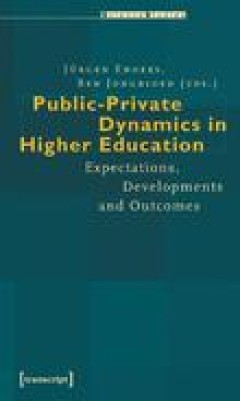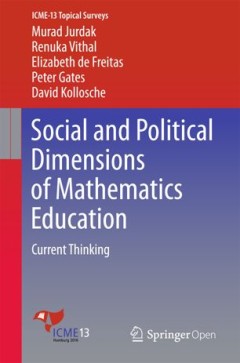Filter by
# Debug Box
/var/www/htdocs/pustaka-digital/lib/SearchEngine/SearchBiblioEngine.php:688 "Search Engine Debug 🔎 🪲"
Engine Type ⚙️: "SLiMS\SearchEngine\SearchBiblioEngine"
SQL ⚙️: array:2 [ "count" => "select count(sb.biblio_id) from search_biblio as sb where sb.opac_hide=0 and (sb.call_number LIKE :callnumber)" "query" => "select sb.biblio_id, sb.title, sb.author, sb.topic, sb.image, sb.isbn_issn, sb.publisher, sb.publish_place, sb.publish_year, sb.labels, sb.input_date, sb.edition, sb.collation, sb.series_title, sb.call_number from search_biblio as sb where sb.opac_hide=0 and (sb.call_number LIKE :callnumber) order by sb.last_update desc limit 10 offset 2520" ]
Bind Value ⚒️: array:1 [ ":callnumber" => "3%" ]

Knowledge manageation and big data : implications for sustainability, policy …
The evolution of knowledge management theory and the special emphasis on human and social capital sets new challenges for knowledge-driven and technology-enabled innovation. Emerging technologies including big data and analytics have significant implications for sustainability, policy making, and competitiveness. This edited volume promotes scientific research into the potential contributions k…
- Edition
- -
- ISBN/ISSN
- 9783039280094
- Collation
- IX< 402 p.
- Series Title
- -
- Call Number
- 300.285 LYT k

Higher education in the era of the fourth industrial revolution
This open access collection examines how higher education responds to the demands of the automation economy and the fourth industrial revolution. Considering significant trends in how people are learning, coupled with the ways in which different higher education institutions and education stakeholders are implementing adaptations, it looks at new programs and technological advances that are cha…
- Edition
- -
- ISBN/ISSN
- 9789811301940
- Collation
- xix, 229p. : ill.
- Series Title
- -
- Call Number
- 378 HIG h

Managing social research: a practical guide
The recent Commission on the Social Sciences (2003) found it difficult, if not impossible to define social science other than in the broadest terms. 'In essence, then, we have come to see the social sciences as about "disciplined curiosity about societies in which we all live", leading to the creation and sharing of social knowledge.' The Commission felt the term social science was a misnomer …
- Edition
- -
- ISBN/ISSN
- 9780415355162
- Collation
- xi, 180 p. : ill. ; 24 cm.
- Series Title
- Social research today (Routledge (Firm))
- Call Number
- 301.072 TAR m

Transforming research methods in the social sciences: case studies from South…
editors, Sumaya Laher, Angelo Fynn and Sherianne Kramer.
- Edition
- -
- ISBN/ISSN
- 9781776143559
- Collation
- xiv, 442 pages : illustrations ; 25 cm
- Series Title
- -
- Call Number
- 300.721 LAH t

Battle for Open: How openness won and why it doesn't feel like victory
With the success of open access publishing, Massive open online courses (MOOCs) and open education practices, the open approach to education has moved from the periphery to the mainstream. This marks a moment of victory for the open education movement, but at the same time the real battle for the direction of openness begins. As with the green movement, openness now has a market value and is su…
- Edition
- -
- ISBN/ISSN
- 9781909188365
- Collation
- x, 232p. : ill.
- Series Title
- -
- Call Number
- 378.17344678 WEL b

The digital public domain : foundations for an open culture
Digital technology has made culture more accessible than ever before. Texts, audio, pictures and video can easily be produced, disseminated, used and remixed using devices that are increasingly user-friendly and affordable. However, along with this technological democratization comes a paradoxical flipside: the norms regulating culture's use —copyright and related rights —have become increa…
- Edition
- -
- ISBN/ISSN
- 9781906924478
- Collation
- xxv, 220p. : ill.
- Series Title
- -
- Call Number
- 346.048 DIG d

Interpretive social research : an introduction
This volume is a clear introduction to methods of data collection and analysis in the social sciences, with a special focus on interpretive methods based on a logic of discovering hypotheses and grounded theories. The chief methods presented are participant observation, open interviews and biographical case reconstruction. The special advantages of interpretive methods, as against other qualita…
- Edition
- -
- ISBN/ISSN
- 9783863953744
- Collation
- 246p. : ill.
- Series Title
- -
- Call Number
- 301 ROS i

Public-private dynamics in higher education: expectation, developments and ou…
Worldwide, scholarship and policy-making develop new ideas and models for the role of higher education and research in society and economy. This development points to changing relationships and boundaries between the public and private spheres in higher education including their public and private steering and funding, public-private partnerships between universities and firms, the rise of priv…
- Edition
- -
- ISBN/ISSN
- 9783899427523
- Collation
- 525p.: ill.
- Series Title
- -
- Call Number
- 378.04 END p

Social and political dimension of mathematics education: current thinking
This book examines the current thinking on five critical social and political areas in mathematics education. It focuses on material conditions in teaching and learning, and details features of social life and their influence on mathematics teaching, learning and achievement. Following an introduction, the first section addresses equitable access and participation in quality mathematics educati…
- Edition
- -
- ISBN/ISSN
- 9783319296555
- Collation
- vii, 37p.:
- Series Title
- -
- Call Number
- 370

Professional learning in education
Educational quality is at the center of debates worldwide. In all these debates, teachers are considered as the critical actors determining to a large extent the quality of our educational systems. At the same time, doubts are expressed related to teachers’ quality as well as to the education or training of teachers. In this context, policy debates underline the need for ‘excellent’ teach…
- Edition
- -
- ISBN/ISSN
- 9789038225968
- Collation
- 229p. : ill.
- Series Title
- -
- Call Number
- 371.172 DE p
 Computer Science, Information & General Works
Computer Science, Information & General Works  Philosophy & Psychology
Philosophy & Psychology  Religion
Religion  Social Sciences
Social Sciences  Language
Language  Pure Science
Pure Science  Applied Sciences
Applied Sciences  Art & Recreation
Art & Recreation  Literature
Literature  History & Geography
History & Geography